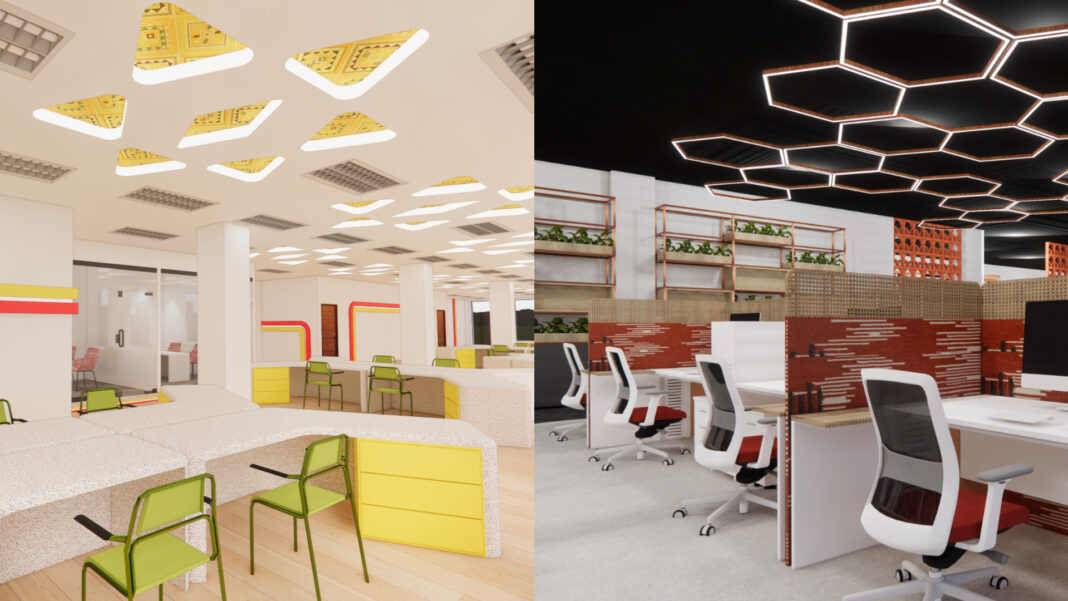Shell, the global group in refining oil and natural gas, invited young artists to develop sustainable and innovative proposals on fashion, furniture, and workspace based on recycled materials.
The company partnered with the Guild of Rising Interior Designers (GRID), the official organization of the De La Salle-College of Saint Benilde (DLS-CSB) Interior Design Program. They challenged students to produce prototypes which optimized health, safety, security, and environment (HSSE), whether face-to-face or work-from-home arrangements.
Under the mentorship of educator IDr. Candice Arboleda, the trailblazers derived ideas from Filipino heritage, tradition, and culture to ease waste emissions and ergonomic challenges of the labor force.
Mari Abad and Pauline Paluero were hailed as grand prize winners for their entry entitled Mutualism. They received a P10,000 cash prize.
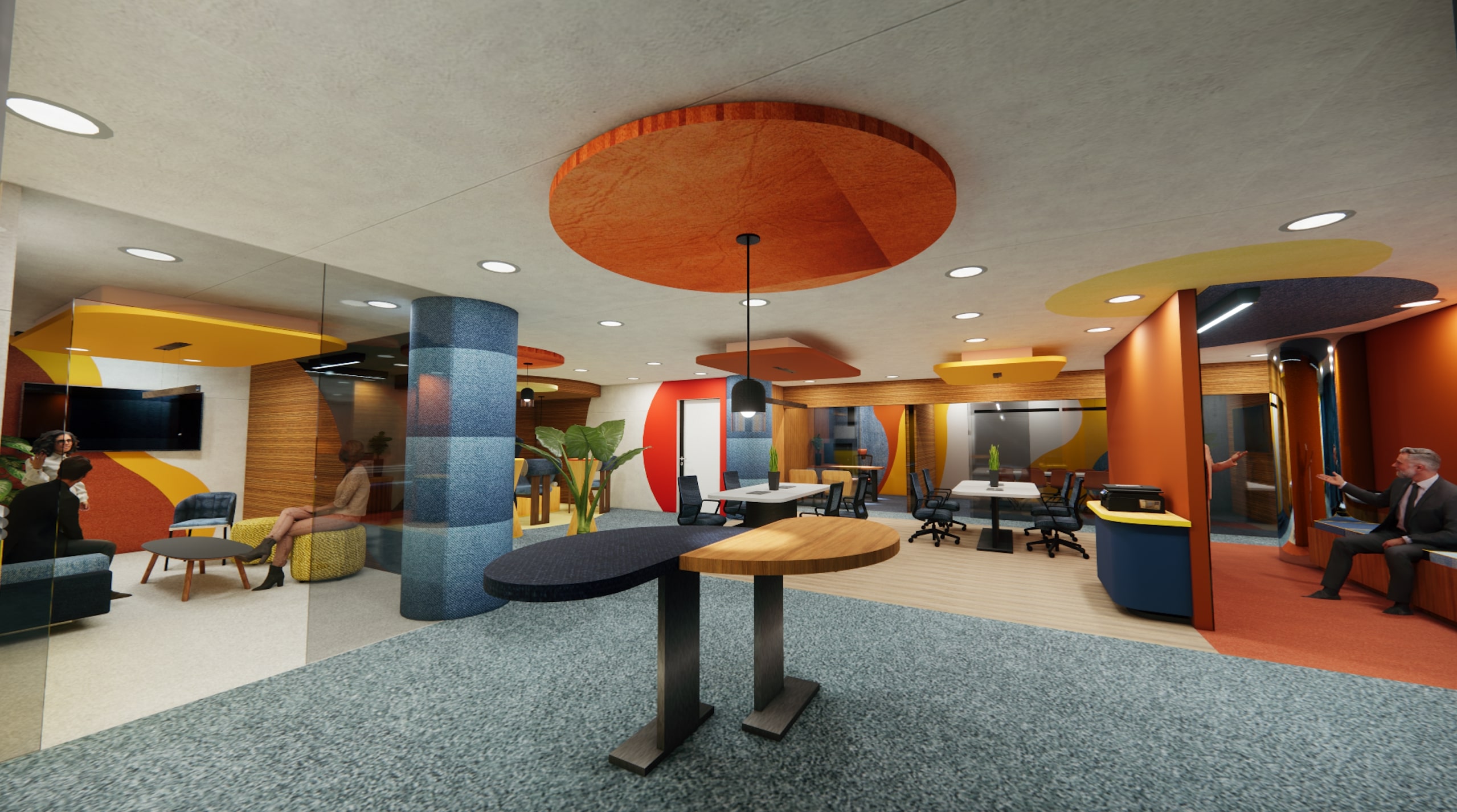

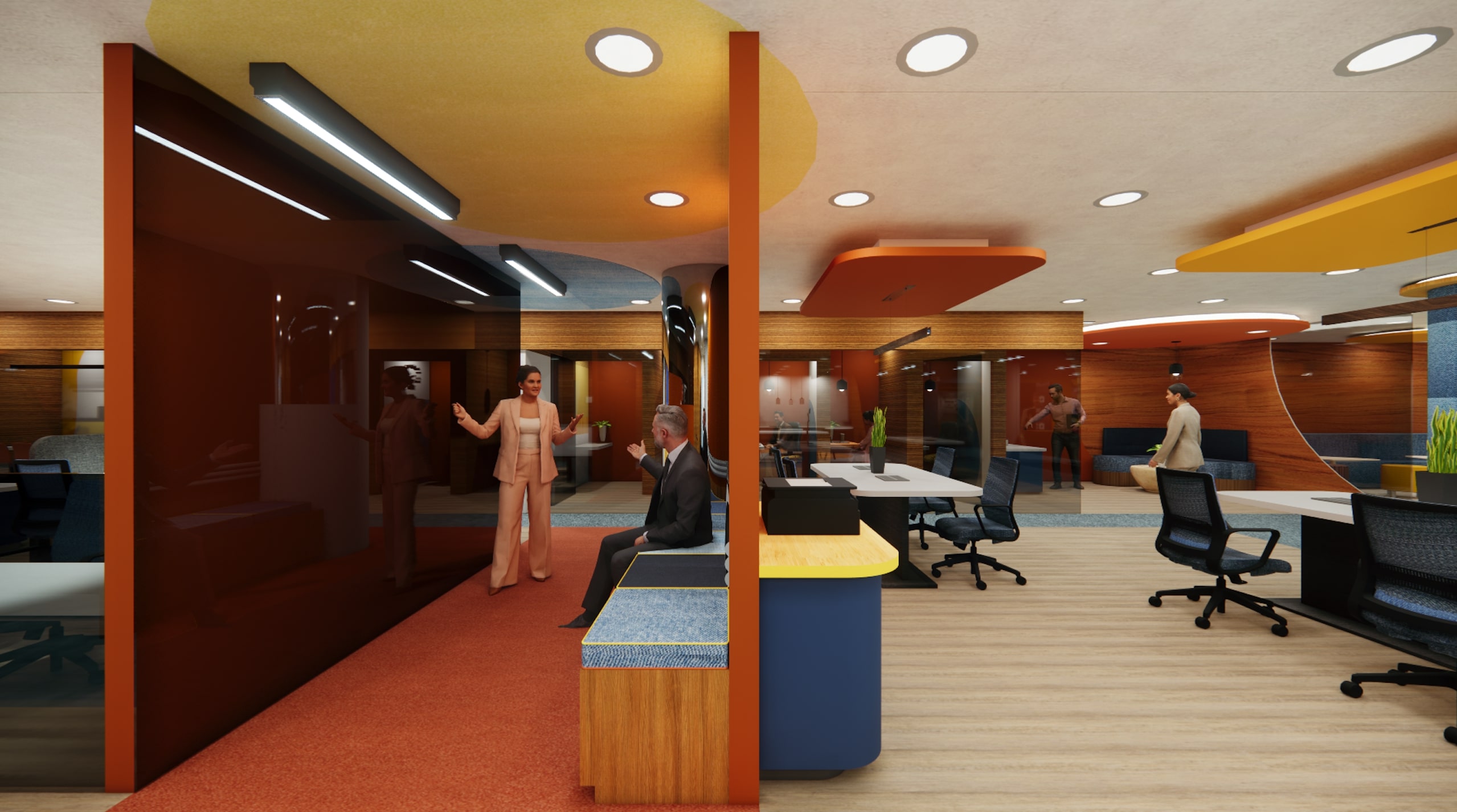
Inspired by the Tubbataha Reefs in the Sulu Sea, the duo explored the symbiotic interaction between employers and employees to build a productive and vigorous landscape.
With this in mind, they crafted the operational stations with curved denim partitions and adjustable chairs, providing privacy and eco-friendly atmosphere. The lobby, telecommunication booths, and meeting rooms were curated for comfort and effective utilization of equipment and resources.
These were patterned on the color psychology of the professional setting, wherein orange was meant to stimulate creativity, yellow sparked productivity, and blue stood for competence.
Shell likewise commended and handed out plaques of recognition to seven finalists for their remarkable initiatives.
Moth Scale, formed by Kristine Andres and Alexandra Fajardo, was based on the insect’s overall shape, texture, and shade. To honor the country’s all-time public transportation, they adapted the jeepney theme as a form of banquette sitting to represent the community’s resilience and ingenuity in the common area.

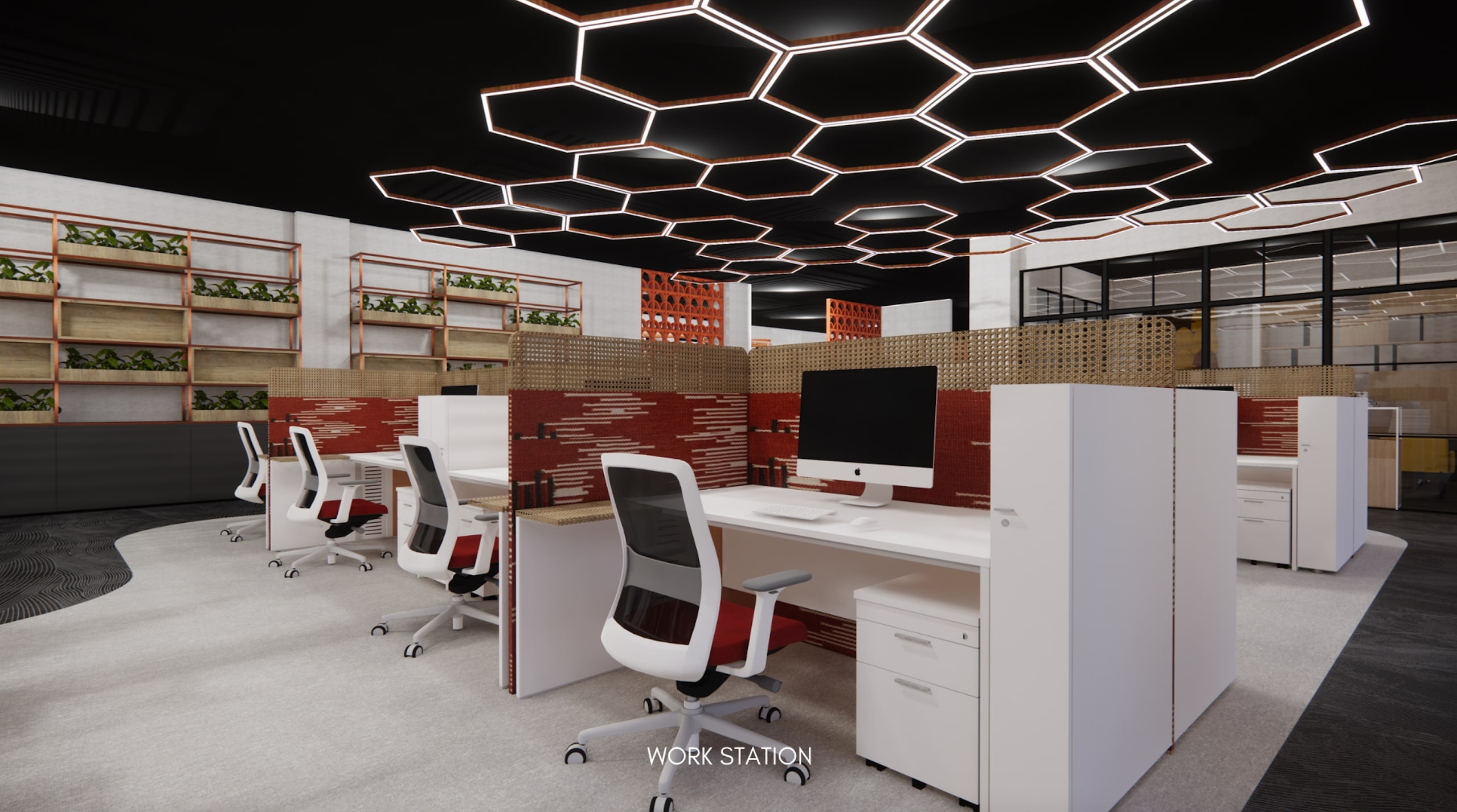
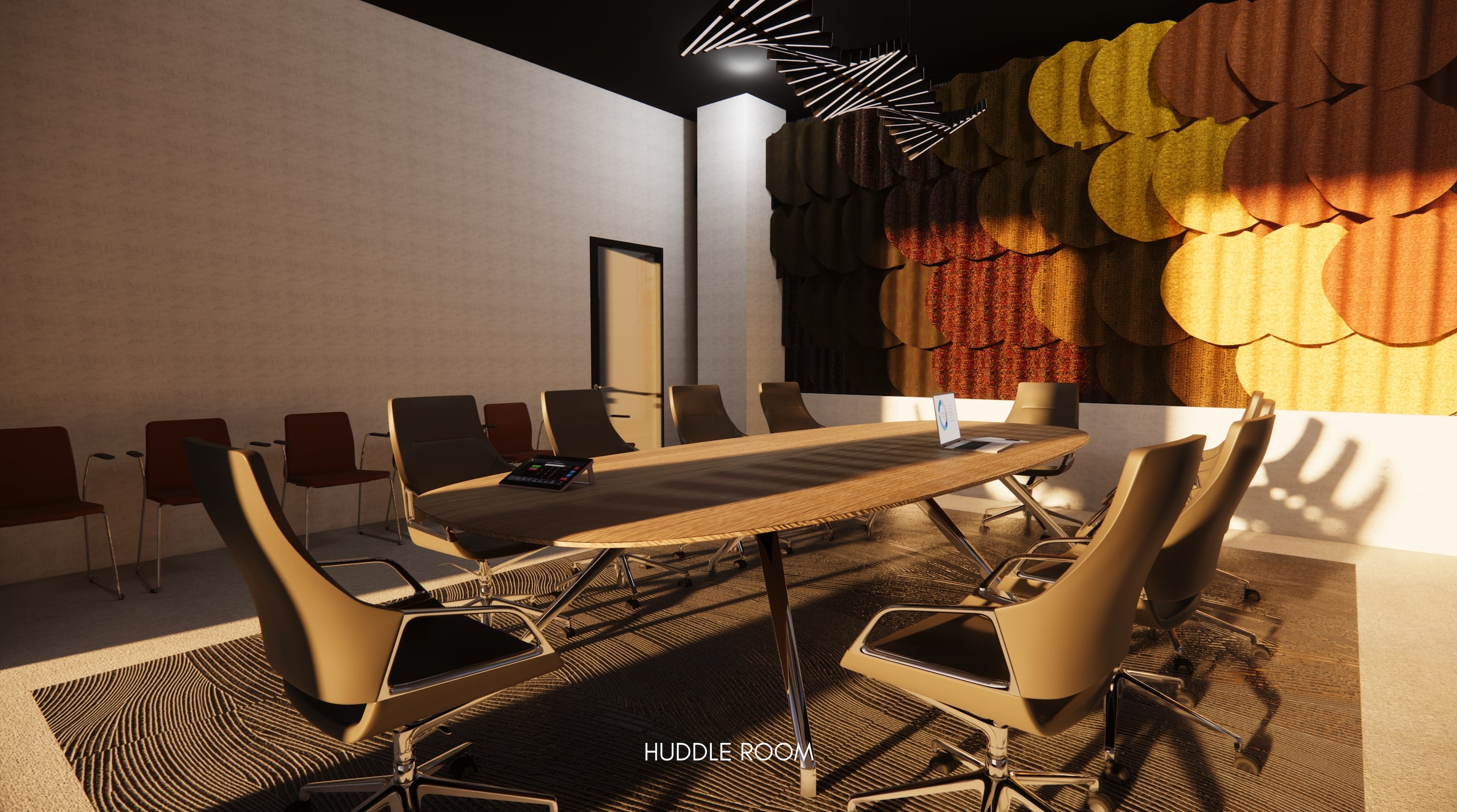
They likewise integrated cotton for knitted sofa covers, rattan and water lily for desk dividers, and high LED hexagon lights to reduce energy costs.
For her framework Solace in Filipino Sensibilities, Lucia Baltazar was motivated by the classic advertisements of local brands to establish the native roots and maintain operational efficiency in the office.

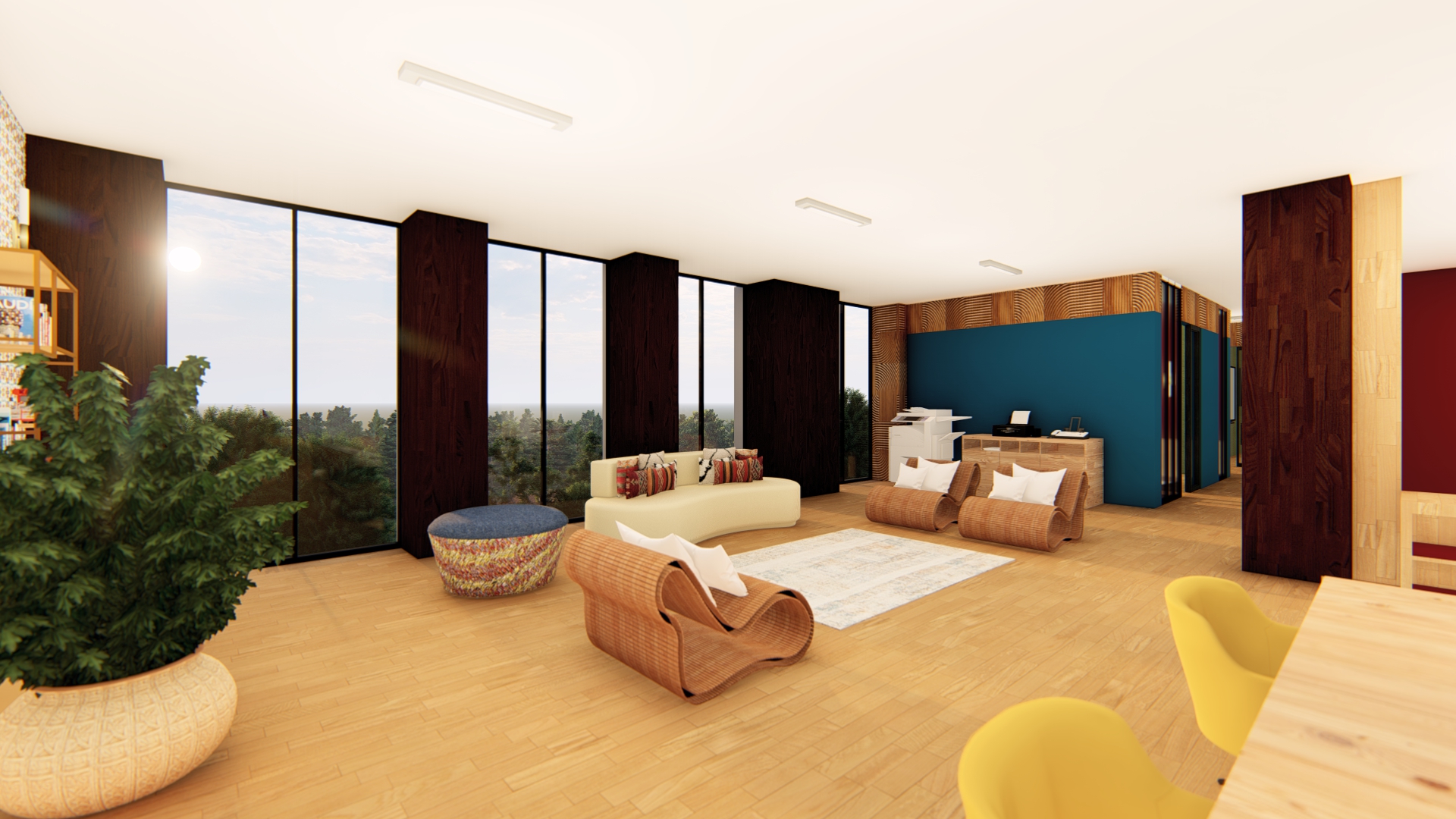
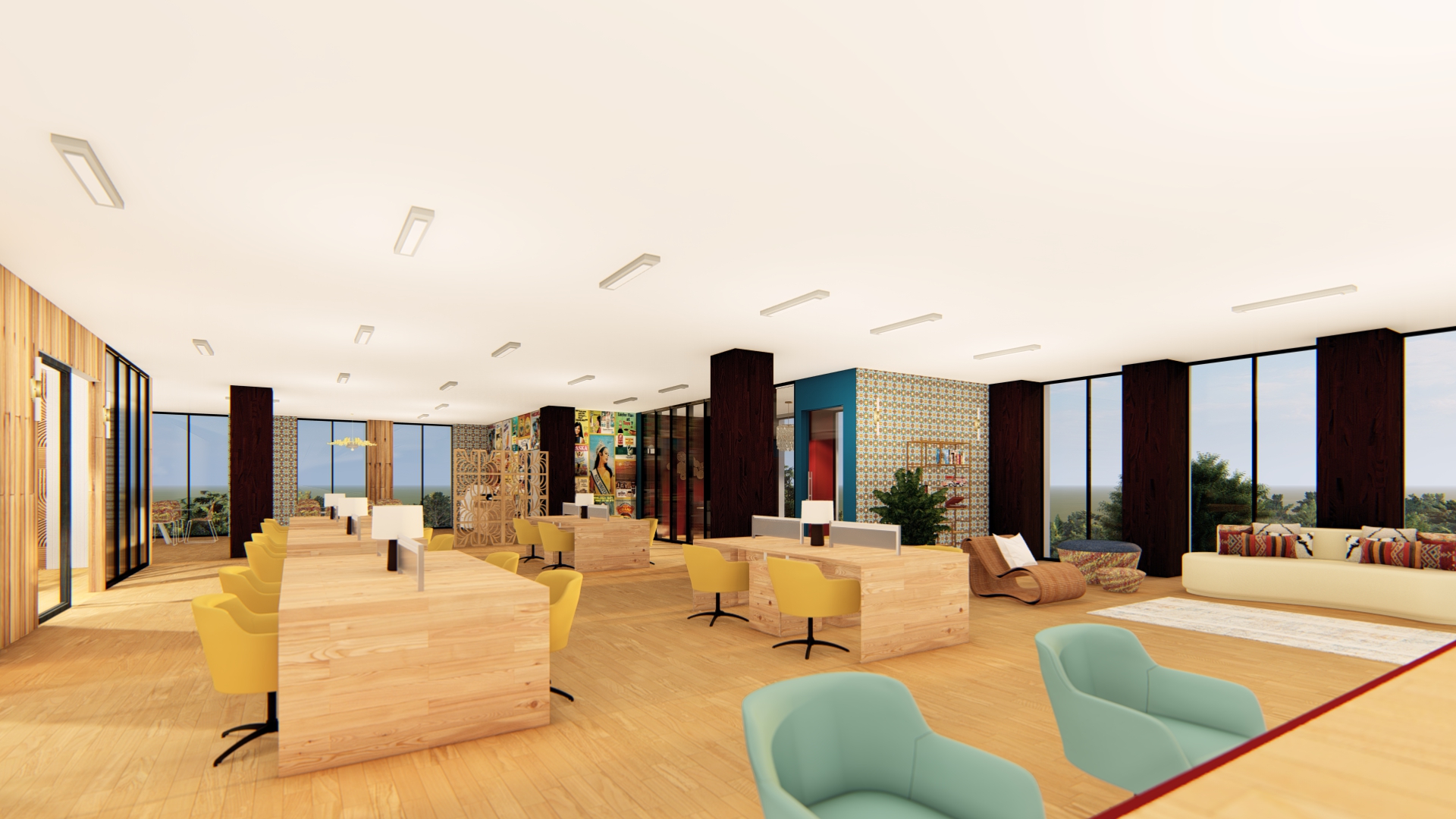
She intertwined denim jeans and plastic remnants into couches influenced by the style of internationally-lauded trailblazers, namely Ito Kish, Kenneth Cobonpue, Vito Selma, Willie Garcia. Machuca Tiles, a handmade cement tiles brand, was likewise inspired the students.
Selina Cu and Faye De Leon’s Padayon, a Visayan phrase for encouragement, took elements from the urban customs and livelihood to foster collaboration and progress.
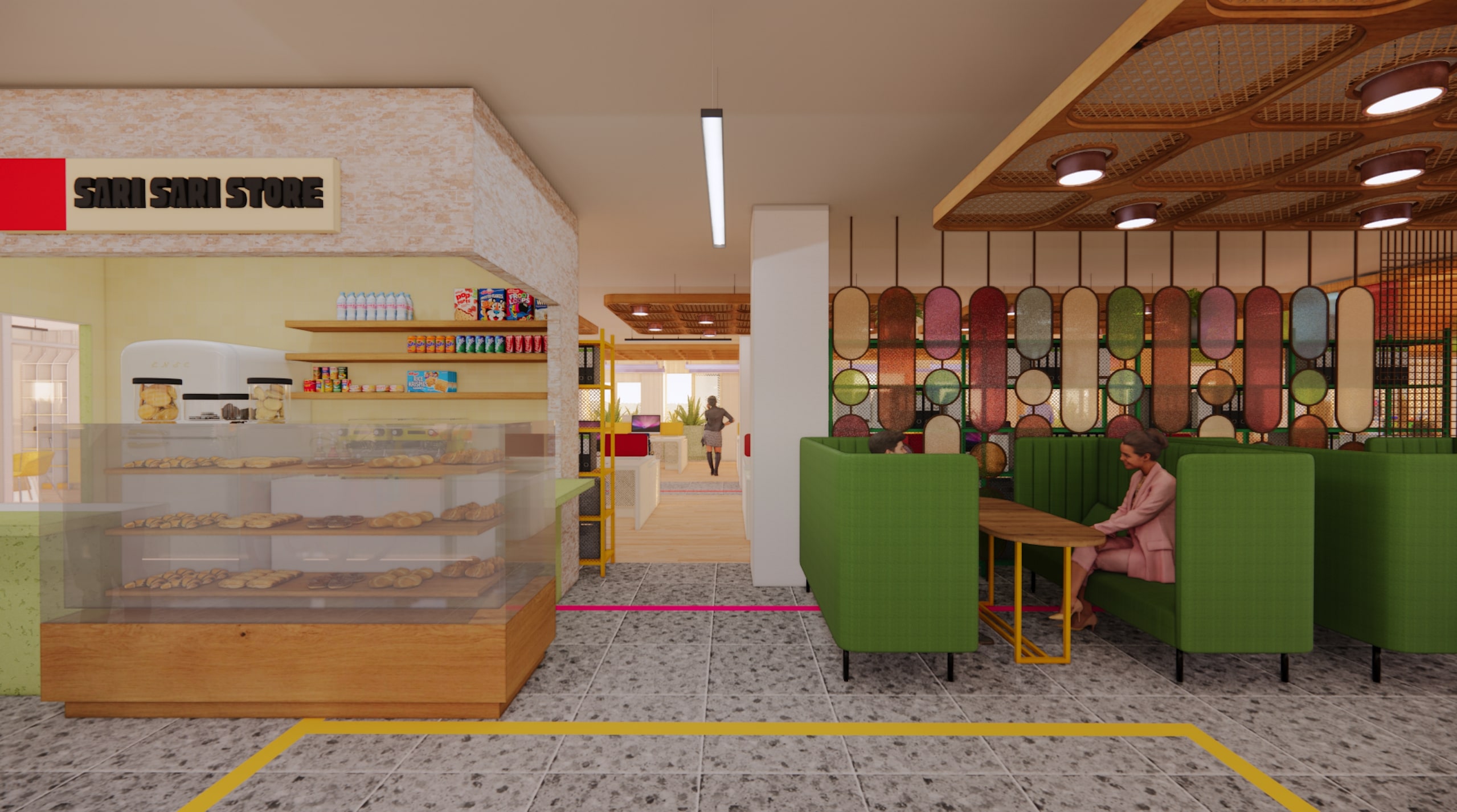
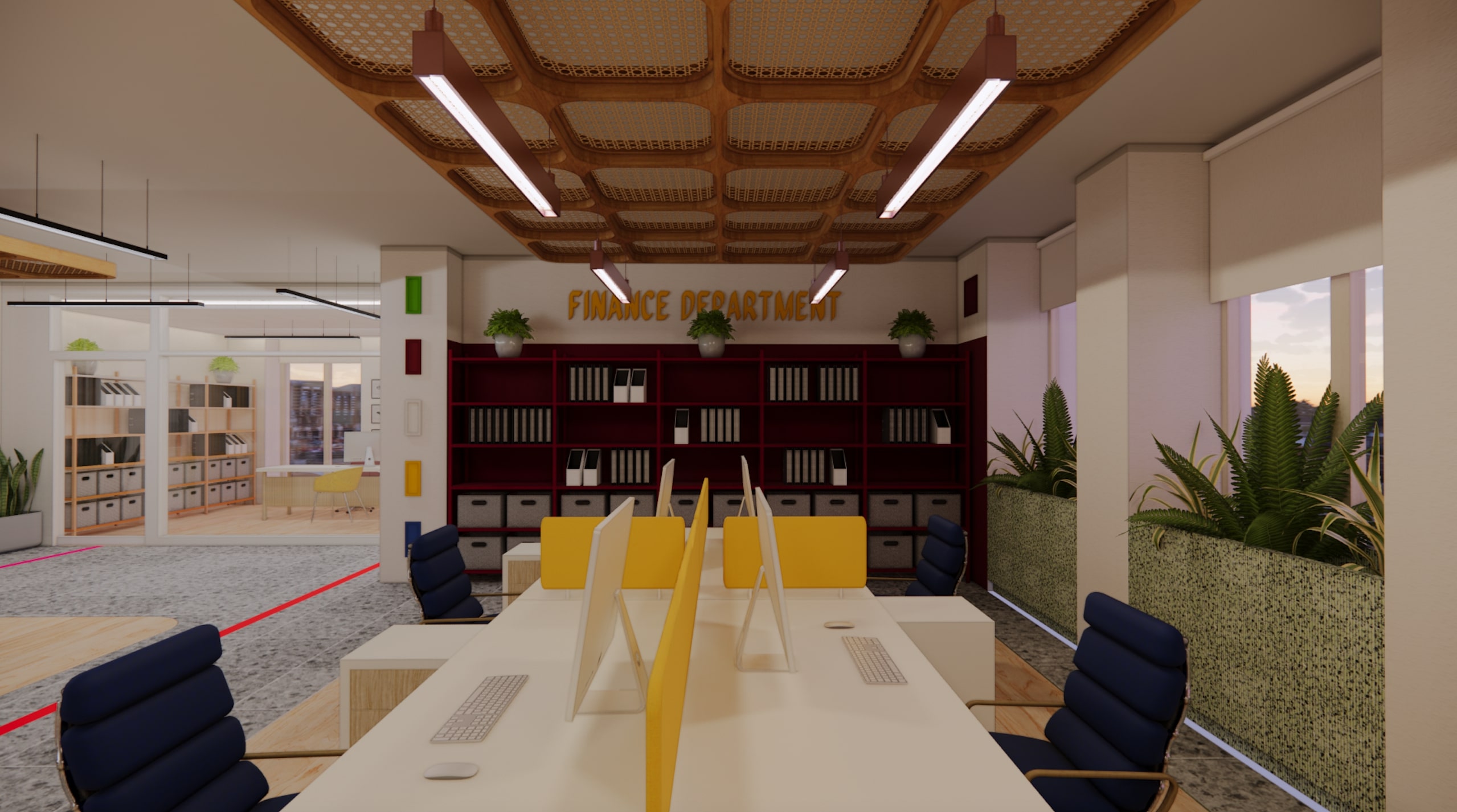

They recreated a Sari-Sari store, telephone stalls, and casual lounges comprised of mats and reused polymers to stimulate engagement among the workers.
Cradle to Cradle (C2C) of Natalie Ongpeng utilized a conservation-oriented technique which built a strong connection with nature to generate a healthy ecological system. This aims for all resources to be used efficiently and cyclically.
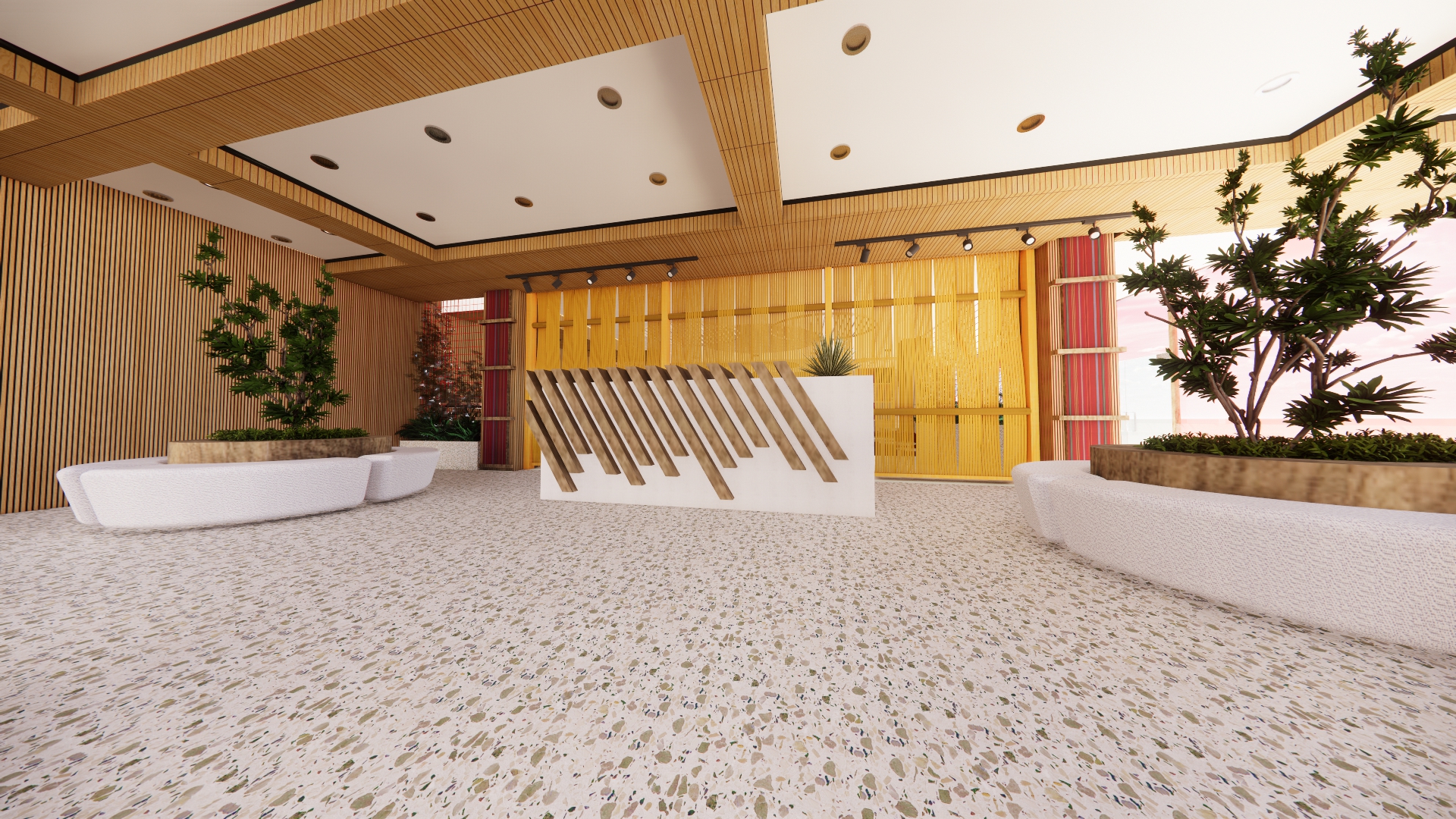

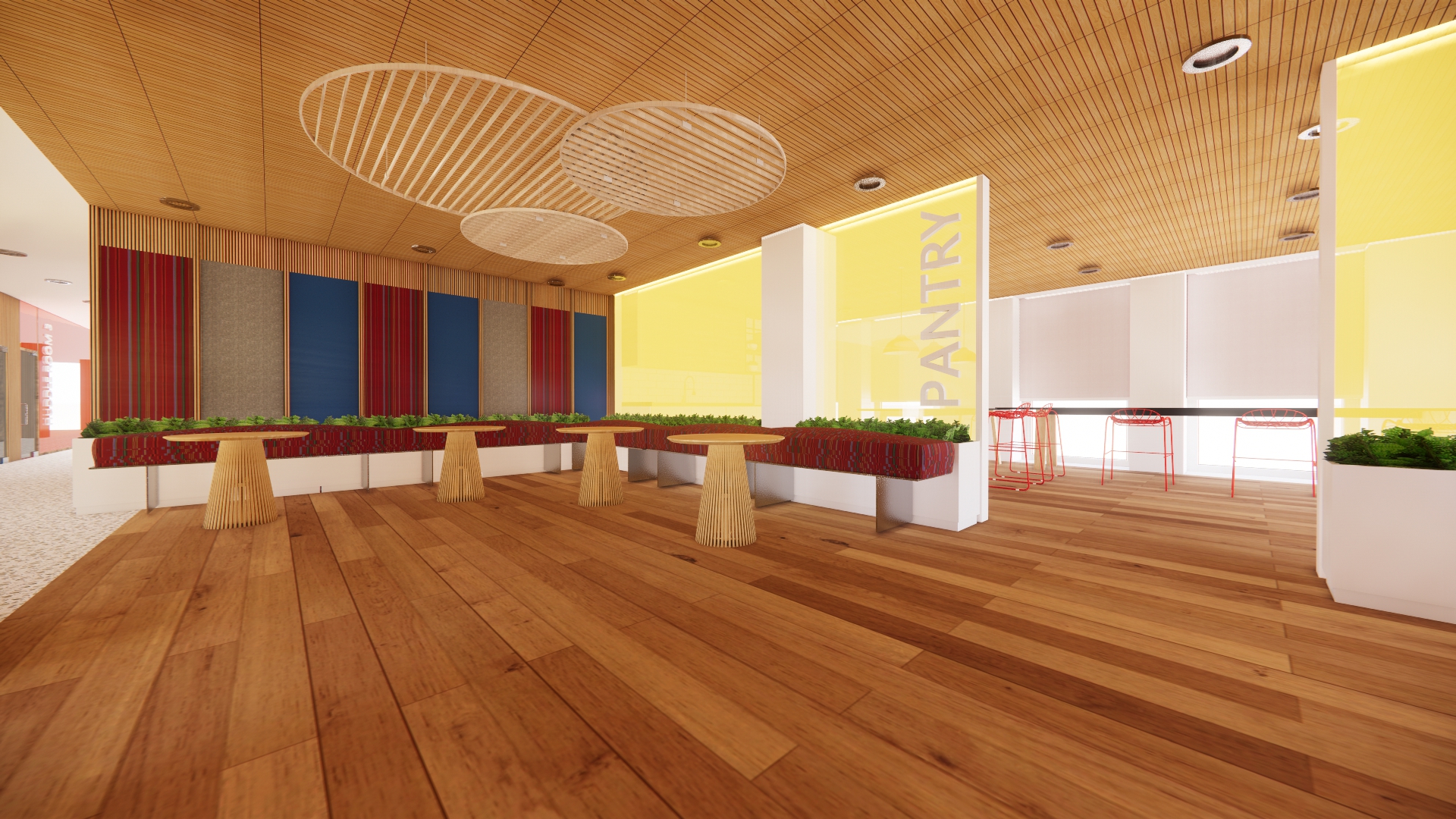
She applied upcycled synthetic substances such as linoleum, tinted window films, terrazzo tiles, and low VOC paint through the stools, counters, and pane.
Krizia Tan’s Pakisama, a Tagalog word for getting along, represented the fusion of modern and traditional indigenous weaves from the different provinces to uphold harmony and solidarity.

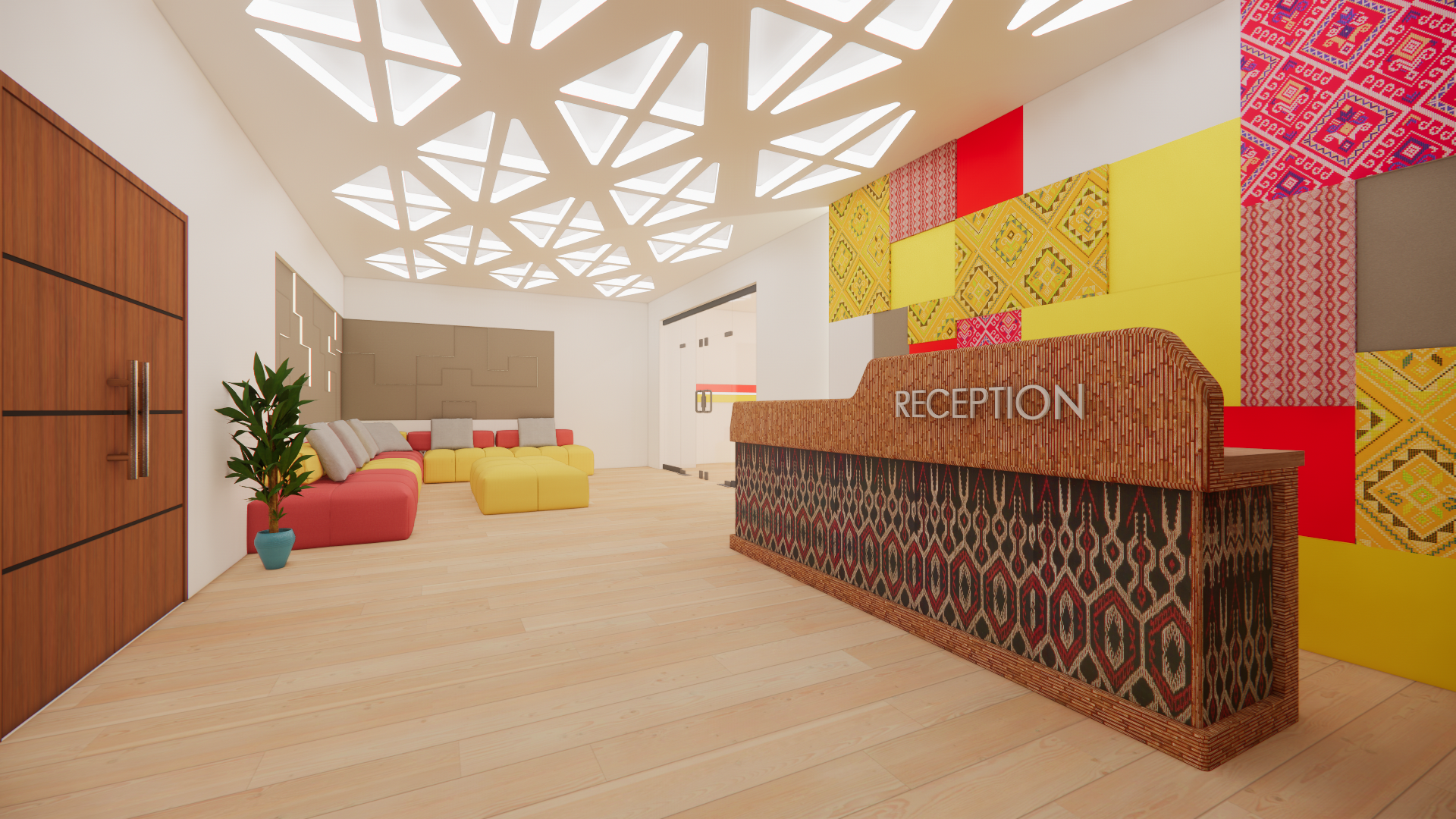
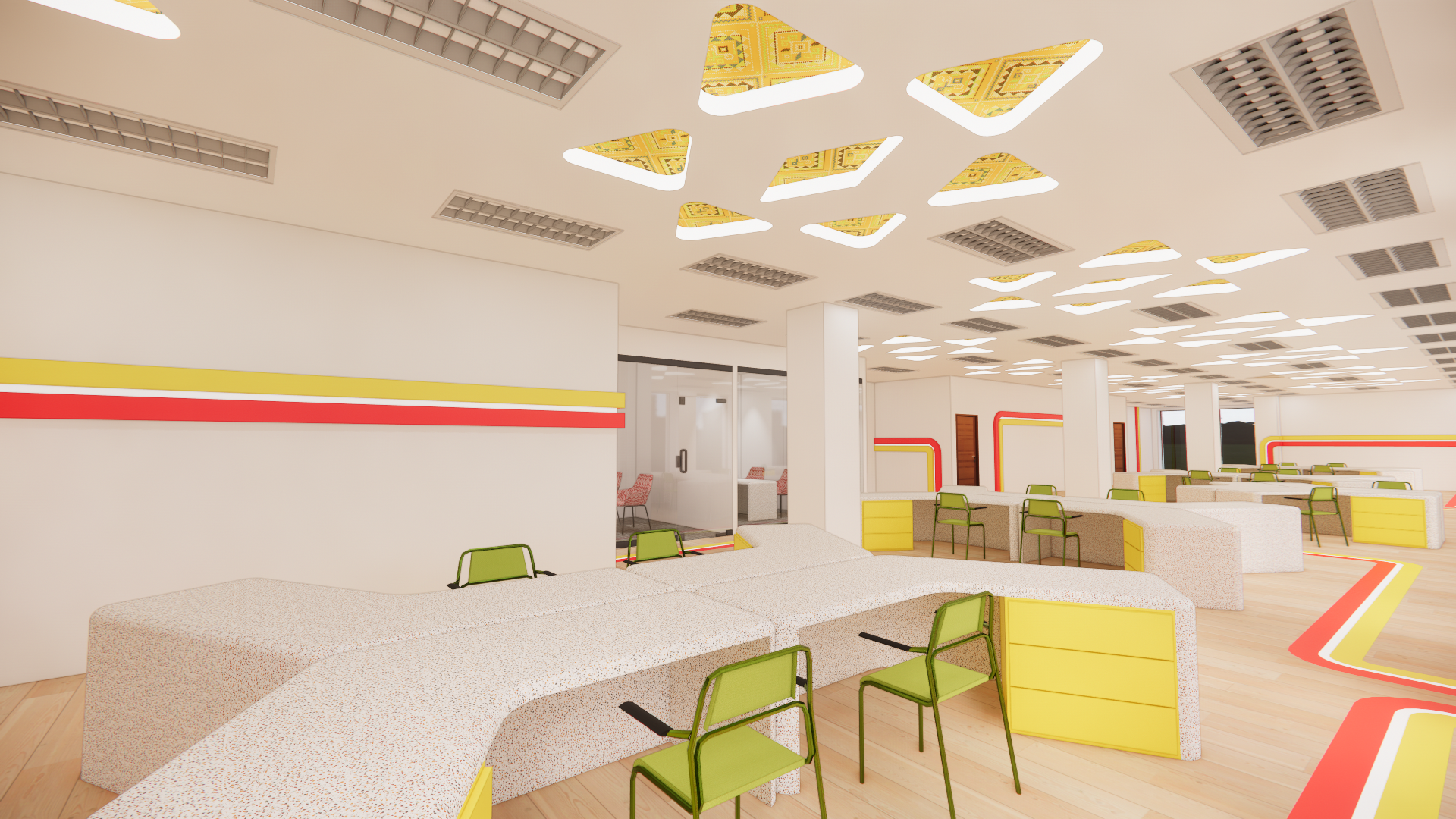
She transformed fabrics such as Binakol from Abra, Yakan Seputangan from Basilan, Inabel from Ilocos, and T’nalak from South Cotabato into walls, floorings, and seats.
The projects were meticulously screened by HSSE Specialists Patrick Lojo and Krizelle De Ungria, Real Estate Manager Ryl Misalucha, Facilities Manager Archie Arceno, and Human Resource Manager Juno Arcenal.


